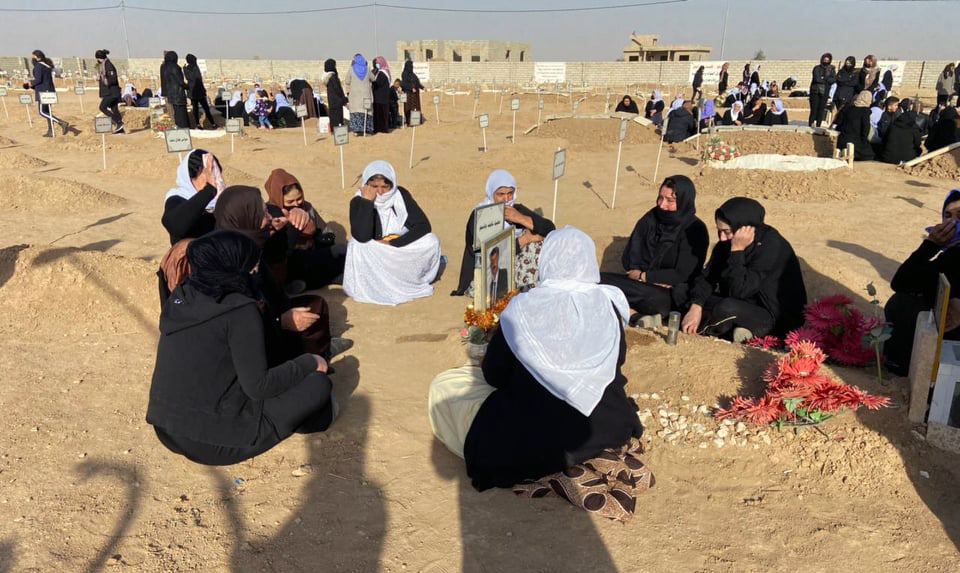The Iraqi national teams for uncovering mass graves are planning to unearth seven mass graves in a village of Shingal (Sinjar) west of Mosul where 100 remains were tossed in pits by the extremist militants of Islamic State in Iraq and Syria ISIS back in 2014.
The United Nations UN is supervising the process which will take days in the village of Hardan southeast of Shingal, home to the Ezidi community, along with the religious and social figures on Tuesday.
The war-ravaged and vulnerable Ezidi community is passing another tough day of its recent history for its thousands of years old religious beliefs.
ISIS staged an assault on 3 August 2014 and committed mass killings throughout the district of Shingal, including in Kocho mid of August. According to figures by the Ezidi Affairs of Kurdistan Regional Government KRG Ministry of Awqaf (Endowment), 2,293 Ezidis were killed by ISIL militants in August 2014 and still over 2,000 are missing in atrocities mounted to genocide, as UN declared.
Up today, 80 mass graves have been discovered in Shingal along with dozens of single graves, all of which dating back to the time when ISIS attacked and took control of the district.
Sabah Samir, media officer of the office for the spiritual leader of the Ezidis called Baba Sheikh, at the ceremony of uncovering the mass graves, told KirkukNow “some religious rituals will be held then exhumation of mass graves follows.
“We expect to find 100 remains in Hardan mass graves which requires long time and can’t be done in one or two days,” he added.
Hundreds of Ezidis, including IDPs living in camps in Duhok Northern province, attend the process in order to find their relatives.
Shirin Khero, a resident of Shingal living in Khanky IDP camp in Duhok, said she is expecting to find her father, uncles, almost 15 members of her family in these mass graves.
“It is a tragic day for me, waiting to find bodies of my family members. Most of them are relatives of mine,” Khero desperately said.
Ninewa, March 15, 2019: Relatives of IS victims attending the exhumation of the first mass grave. Ibrahim Ezidi
The exhumation of mass graves was first launched Mid-March 2019 in Kocho village, and so far the remains of nearly 500 victims have been exhumed in two stages from 20 mass graves. In Kocho, a 300-grave cemetery was prepared for the remains in 2019.
Early December, 41 identified remains of victims slaughtered at the hands of the extremist militants of were returned from Baghdad Forensic Medicine to Ninewa where it was received by their families and relatives in a public ceremony and properly laid to rest.
The remains, 15 of them women and children, were flown Thursday from Baghdad to the village of Kocho in Shingal
Khairi Ali, head of Shingal office for Ezidi Organization for Documentation, believes that no one is definitely sure how many bodies can be found in these seven mass graves which will take three weeks.
Ezidis are an ethno-religious minority over half a million population, mostly residing in Shingal (Sinjar) and Shekhan in northern Iraqi province of Nineveh. The militants of the extremist group of Islamic State in Iraq and Syria ISIS in 2014 attacked their communities accusing them of being heretics, killing thousands of men and taking thousands of women and children as sex slaves.
Shingal, located 120 km west of Mosul on the border of Iraq-Syria, is home to hundreds of thousands of the Ezidi community and one of the disputed territories between Baghdad and Erbil.





